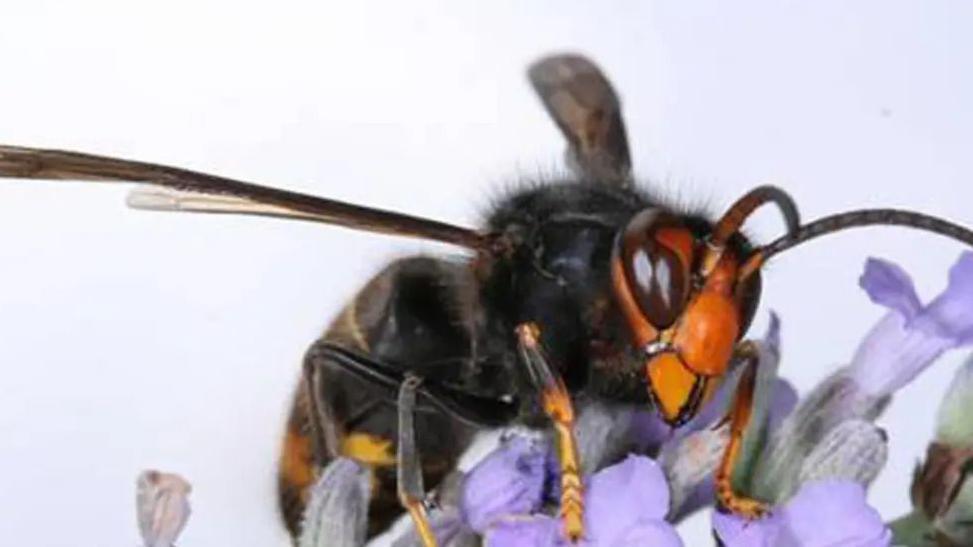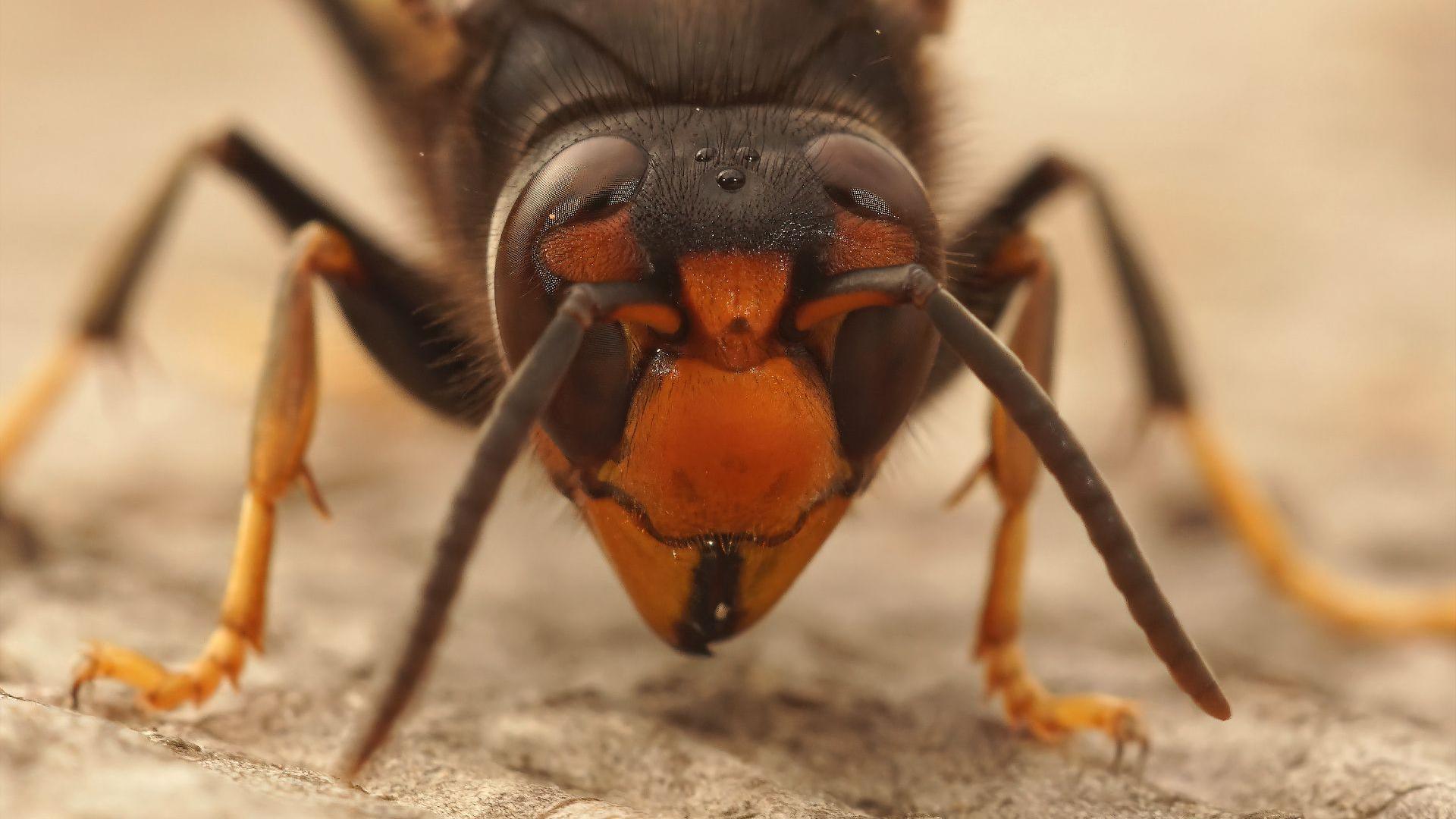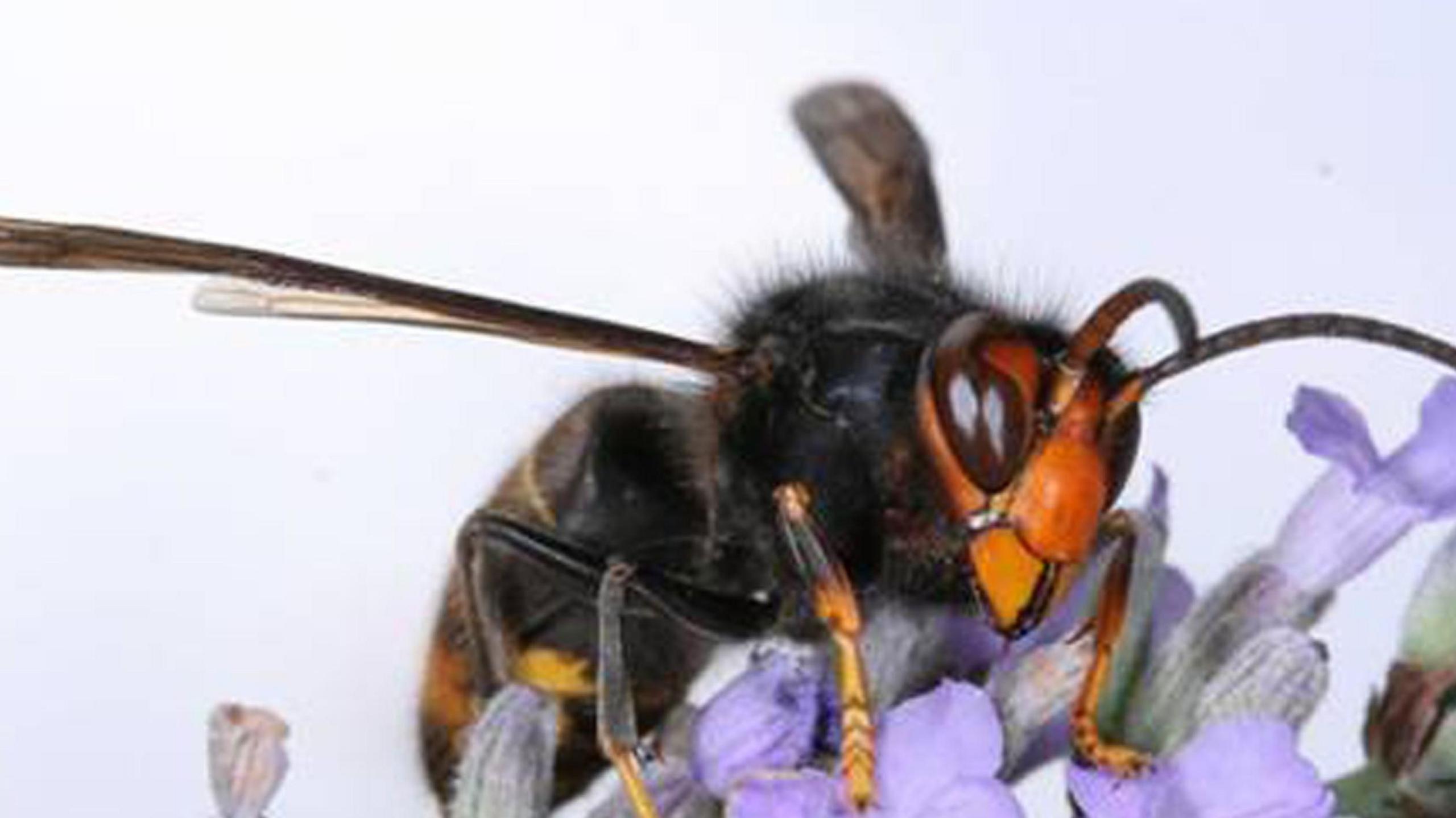Calls to report yellow-legged hornets in Kent

Asian hornets feed on all insects including honey bees
- Published
A council in Kent has joined calls for its residents to report sightings of the yellow-legged hornet, which has been described as a "highly aggressive'" insect.
The wasp, also known as an Asian hornet, is an "invasive, non-native species" which has been sighted in the county over the past few months.
It has been found in places including Canterbury, Deal, Appledore, Ramsgate, Langley, Folkestone, Broad Oak, Nonington and Sandwich.
Folkestone and Hythe District Council is now asking its residents to log sightings on the government's Asian Hornet Watch app., external
Experts at the British Pest Control Association said in May people should tell the Non-native Species Secretariat "as soon as possible" if they spot the hornet.
As a highly effective predator yellow-legged hornets can cause significant losses to bee colonies, other native species and potentially ecosystems.
They are active between April and November, but especially in August and September.
Residents who suspect they may have seen the species are requested to report it with a photo and details online, but "should not disturb an active nest".
Jackie Thomas, Dover and District Beekeepers' Association education officer, said: "They are quite distinctive – with the main feature being an orange face, a black body, striped back, yellow legs and about the size of a two pence piece.
"We would suggest people download the Department for Environment, Food and Rural Affairs' free Asian Hornet Watch app where you can take a photograph and easily upload a picture of your sighting."
Follow BBC Kent on Facebook, external, on X, external, and on Instagram, external. Send your story ideas to southeasttoday@bbc.co.uk, external or WhatsApp us on 08081 002250.
Related topics
- Published11 May

- Published22 May 2024
